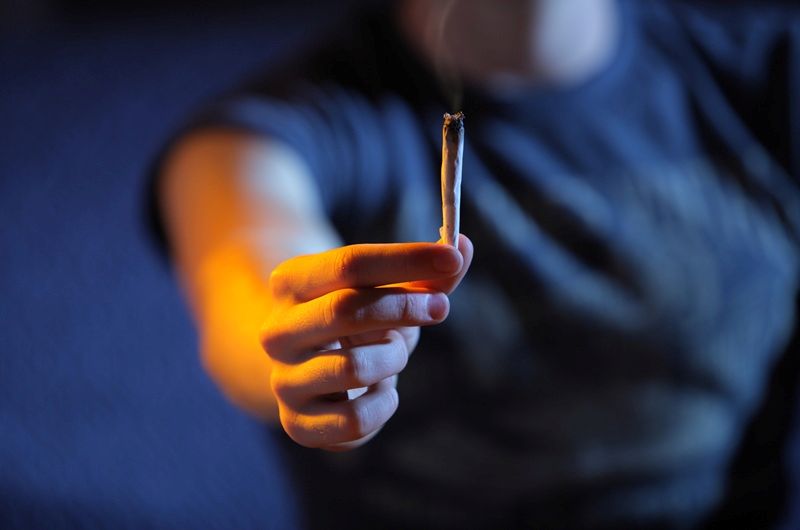Charges of driving under the influence, resulting in serious bodily injury, can hit like a wrecking ball, with the penalties shattering your future. However, knowing your options can help you pick up the pieces and build a strong strategy.
This article explains the DUI maiming offense, including its legal definition and penalties. It also highlights the key elements prosecutors must prove to secure a conviction. By the end, you will learn how to use these factors in your defense to work toward a favorable resolution.

DUI Maiming In Virginia & Its Potential Consequences
Driving under the influence (DUI) maiming is a felony offense under Virginia Code § 18.2-51.4. It applies when you drive a motor vehicle under the influence and unintentionally cause serious bodily injury to another. The offense can result in a Class 6 felony, carrying one to five years in prison and fines of up to $2,500.
However, if the injury causes permanent and significant physical impairment, the court can escalate the charge to a Class 4 felony. It is punishable by two to ten years in prison. Additional penalties include fines, mandatory license revocation, and a permanent criminal record.
To secure a conviction, prosecutors must prove key legal elements beyond a reasonable doubt. Understanding these factors is essential when building a defense, as challenging them can significantly affect your case’s outcome.
Key Elements To Establish Guilt
For a DUI maiming conviction, prosecutors must establish more than just intoxication. They must prove that your impairment directly led to the accident and caused serious bodily injury. These elements must be supported by substantial evidence, and weaknesses in the prosecution can create opportunities for a defense.
Driving Under The Influence
To secure a conviction, prosecutors must prove you were under the influence of alcohol or drugs while operating a motor vehicle. In the state, a BAC of 0.08% or higher is considered legally intoxicated. Intoxication is typically determined through breath or blood tests, field sobriety tests, and officer observations.
Moreover, for commercial drivers, the BAC limit is 0.04%. For drivers under 21, a BAC of 0.02% or higher can result in a charge under the state’s zero-tolerance policy. DUI laws also apply to impairment from drugs or a combination of alcohol and drugs, even if BAC is below the legal limit.
Proof Of Causation
The prosecution must demonstrate that intoxication was the direct cause of the accident and resulting injury. This means proving that the crash would not have occurred if the driver had been sober. Establishing causation requires analyzing crash reports, witness statements, and evaluations.
Serious Bodily Injury Requirement
The state defines serious bodily injury as harm that involves a substantial risk of death, extreme physical pain, or long-term disfigurement. It can also refer to protracted loss or impairment of a bodily function, organ, or mental faculty. Prosecutors can rely on medical records, testimony, and police reports to establish whether the injury qualifies under the law.
Knowing these legal factors can help in crafting a strong defense. Challenging any weak or unproven element can impact the outcome of your case. With the proper approach, you can fight the charges and work toward a favorable outcome.
Potential Defense Strategies Against DUI Maiming
A DUI maiming offense carries severe penalties, but a strong defense can challenge the prosecution’s case. Legal strategies focus on questioning the validity of the evidence, highlighting procedural errors, and disputing the charges against you.
Challenge The Validity Of BAC & Sobriety Tests
Breathalyzers and field sobriety tests may not always produce reliable results. A breathalyzer must be properly maintained and calibrated, as even a minor error can lead to inaccurate readings. Medical conditions, diet choices, or even mouthwash can also affect test results.
Further, field sobriety tests rely on officer’s observation and can be subjective. Your physical condition, fatigue, or even uneven road conditions can impact them. If law enforcement does not properly conduct these tests, their results may be challenged in court.
Dispute The Causation Element
Prosecutors must prove that intoxication directly caused the accident and resulting injury. Accidents happen for many reasons, including reckless actions by other drivers, road hazards, or sudden mechanical failures.
A defense may involve accident reconstruction professionals who analyze evidence to determine whether another factor contributed to the crash. If the prosecution cannot establish a direct link between intoxication and the injury, the case may weaken.
Question The Extent Of Injuries
Medical records and professional testimony can help challenge whether the injury meets Virginia’s legal definition of serious bodily harm. The court may reduce the charge if the prosecution cannot prove the injury falls within the legal definition.
Identify Violations Of Constitutional Rights
Officers violating your constitutional rights can weaken the prosecution’s case. They need reasonable suspicion for a stop and probable cause for an arrest. If they fail to inform you of your rights or mishandle evidence, your defense attorney can review the case and file a motion to suppress improper evidence.
Aside from knowing these defense strategies, reading answers to frequently asked questions can also be beneficial. The more you know about DUI maiming charges, the better prepared you will be to take the proper legal steps.
FAQs About DUI Maiming
Facing a DUI maiming charge can be stressful, and understanding the legal process is vital. Below are answers to common questions about these charges based on state laws and legal procedures.
What If The Injured Person Was Partially At Fault?
Virginia follows a contributory negligence rule, meaning a victim partly at fault may not recover damages in a civil case. However, in a DUI maiming charge, prosecutors must still prove intoxication directly caused the accident and injuries. The victim’s actions may be considered in defense but do not automatically dismiss the charges.
What Happens After An Arrest?
After an arrest, you will typically be taken into custody and booked at the local jail. You will have an arraignment where the charges are formally presented, and a judge will determine bail conditions. If bail is granted, you may be released until your court date.
The case then moves to pre-trial motions, where attorneys review evidence and present legal arguments. Prosecutors submit evidence to support the charges, and your defense attorney challenges any weaknesses.
If the court does not dismiss or resolve the case through a plea deal, it moves to trial. Both sides present arguments before a judge or jury. If the jury determines that the defendant is guilty, the court determines sentencing based on the offense’s severity and circumstances.
How Long Does A DUI Maiming Case Take To Resolve?
The timeline for a case varies, but most cases take several months to resolve. The length depends on factors such as the complexity of the evidence, the need for testimony, and whether the case goes to trial.
If pre-trial motions result in the dismissal of evidence or if a plea deal is negotiated, the case may be resolved sooner. However, if it proceeds to trial, it could take a year or longer, especially if there are delays due to scheduling or legal disputes.
Let Fairfax County Criminal Attorneys Firm Protect You

At Fairfax County Criminal Attorneys, we understand the serious impact a DUI maiming charge can have on your life. A felony conviction can result in prison time, heavy fines, and long-term consequences. We are committed to providing a strong defense to protect your rights and future.
Moreover, we examine every detail of your case, from the accuracy of chemical tests to potential violations of your constitutional rights. If the prosecution cannot prove key elements beyond a reasonable doubt, we fight to have charges reduced or dismissed.
Our firm also explores alternatives such as plea agreements or reduced sentencing when appropriate. We guide you through each stage, ensuring you have the information and representation needed to make informed decisions. If you are facing DUI maiming charges, contact us today to discuss your options.
DUI maiming is a felony offense in Virginia that carries severe legal consequences. It includes prison time, hefty fines, and a permanent criminal record. Prosecutors must prove intoxication, causation, and serious bodily injury beyond a reasonable doubt. They must present evidence for each element, while the defense can challenge weaknesses.
Potential defenses include questioning BAC results, disputing causation, and identifying constitutional violations. Knowing your rights and options is key to building a strong strategy. At Fairfax County Criminal Attorneys, we help protect your future and secure a favorable resolution.




